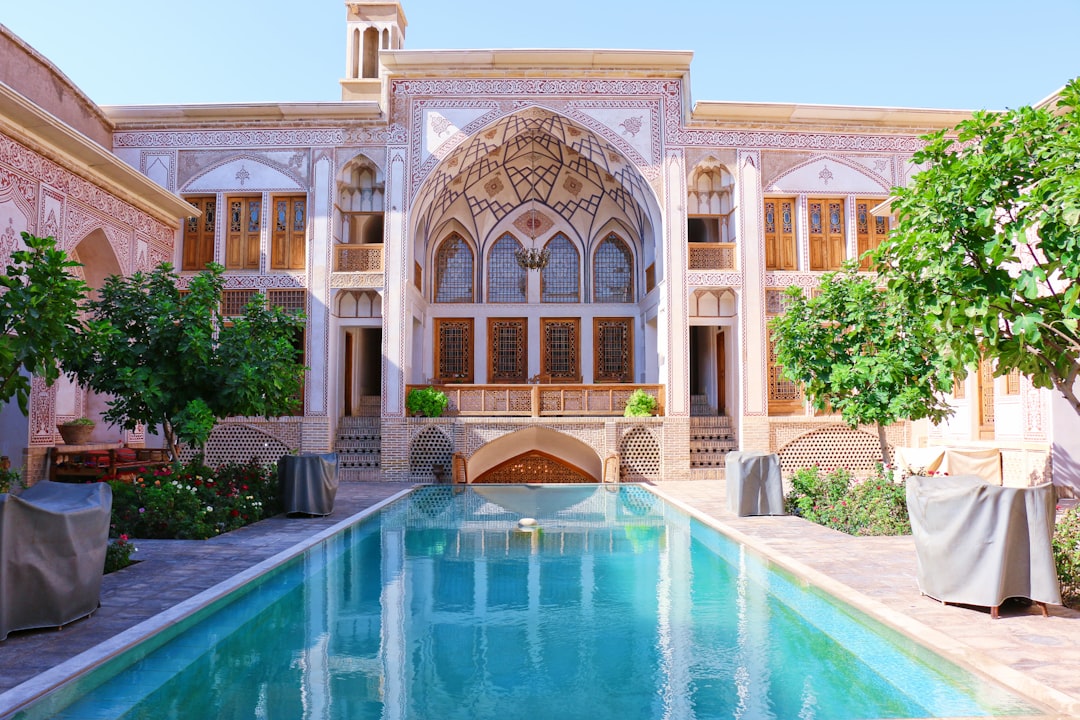When you step into an Iranian home, you’re not just a visitor—you’re treated as a guest of honor. Iranian hospitality is renowned for its warmth, generosity, and deep respect for others, especially guests. Whether you are a long-lost relative, a close friend, or a complete stranger, Iranians will go out of their way to make you feel welcome, comfortable, and valued. Hospitality is not just a cultural norm in Iran; it’s woven into the very fabric of Persian identity.
In this blog post, we’ll dive into the fascinating world of Persian hospitality, exploring the customs, traditions, and values that make it one of the most welcoming cultures in the world.
🏡 Hospitality: The Heart of Persian Culture
In Iran, the concept of hospitality is not just about offering food or drink—it's about sharing one's home, heart, and time. Persian hospitality is an embodiment of the principles of respect, kindness, and generosity, often extending beyond the formalities of just serving a meal.
To the Iranians, hosting guests is an honor, and their generosity comes from a sense of duty to create a welcoming environment. Whether you're visiting a bustling city or a tranquil rural village, the warmth of Persian hospitality is always evident. Iranians believe that guests are a blessing and should be treated with the utmost care, regardless of their background or status.
🍽 The Warmth of the Table: Offering Food and Drink
The most immediate expression of Iranian hospitality is often seen in the offering of food. When you visit an Iranian home, it’s almost guaranteed that you will be offered something to eat. Whether it’s a simple snack or a lavish meal, food is the most common way Iranians show their care for guests.
Tea and Sweets: The ritual of serving tea is central to Persian hospitality. When you first enter someone’s home, you will typically be offered a cup of chai (tea), often accompanied by sweets like baklava, saffron cookies, or fruit preserves. Offering tea is more than just about the drink—it’s an invitation to sit down, relax, and enjoy the company. This gesture creates a feeling of warmth and trust, as Iranians believe that tea not only nourishes the body but also soothes the soul.
Full Meals: If you stay for a meal, expect a rich and diverse spread, often with multiple courses. Persian dishes like kebab, fesenjan (pomegranate stew), ghormeh sabzi (herb stew), and polow (rice pilaf) are common at family gatherings. These meals are lavish but also carefully crafted, showing the host’s devotion to ensuring their guest has a memorable experience. Sharing food in Iran is a deeply communal experience, emphasizing togetherness and the sharing of abundance.
🛋 The Persian Guest Room: Comfort and Respect
In Iran, the guest room (or mehmankhaneh) holds a special significance. It’s often the most comfortably furnished and well-maintained room in the house, reserved specifically for guests. The guest room is usually treated as a sanctuary, offering a peaceful place to rest and relax.
When you arrive at an Iranian home, the first thing you may be asked is whether you would like to sit or lie down. Hosts will often insist that you make yourself comfortable, offering blankets, pillows, or even a tea tray to ensure you feel at ease. This emphasis on comfort shows the value Iranians place on their guests and their desire to make you feel welcome and honored.
💬 The Ritual of Conversation: Welcoming Words
Persians place a great deal of emphasis on conversation and interaction as part of their hospitality. Guests are often welcomed with kind words, compliments, and personal questions. A typical conversation might involve inquiries about your well-being, your family, and your life—these questions aren’t just polite; they are a way to create a genuine connection. The warmth of Iranian conversations is a reflection of the culture’s emphasis on community and relationships.
Taarof: One unique aspect of Iranian hospitality is taarof, a form of polite, ritualistic social interaction that involves offering something before it is truly accepted. For example, your host might offer you more food or tea multiple times, even though you may have already declined once. It’s part of the Persian culture to insist on offering until the guest politely and repeatedly declines. This back-and-forth is a way of showing generosity and ensuring that the guest feels cared for.
While taarof may seem complicated to outsiders, it’s important to recognize that it is not meant to be insincere. It’s an integral part of the ritual of giving and receiving in Persian culture, reflecting the deep respect Iranians hold for hospitality.
🎁 Gifts: A Symbol of Respect
If you’re a guest in Iran, it’s likely that your host will offer you a gift. Gifts are a symbol of goodwill and respect, and they often carry deep significance. In Persian culture, it’s customary to give gifts on special occasions, but even when there’s no formal event, presenting a small token of appreciation is common when hosting guests.
Common gifts might include fruit, sweets, or handcrafted items like carpets or jewelry. These gifts are not meant to be extravagant but rather are meant to show the guest that they are valued and respected.
💌 Saying Goodbye: The Final Gesture of Hospitality
When it’s time for guests to leave, Persian hosts often make a big show of seeing them off. Guests are typically escorted to the door, and the goodbyes are sincere and heartfelt, with a final exchange of pleasantries and warm wishes. In some cases, Iranians will offer to send guests off with a snack for the journey or offer to help with anything else they might need. This ritual shows the deep respect Iranians have for their guests and the enduring nature of their hospitality.
🌍 A Universal Value
Iranian hospitality is rooted in universal values that transcend geography and culture. The emphasis on generosity, respect, and community is a reminder that hospitality is not just about food or drink; it’s about connection, humanity, and the shared experience of kindness. In a world that often seems busy and fast-paced, Persian hospitality encourages us to slow down, appreciate the moment, and truly embrace one another.
So, the next time you find yourself invited to an Iranian home, don’t be surprised by the abundance of tea, food, and warm smiles. You are not just a guest—you are a cherished visitor, treated with the utmost care and respect, because that is the essence of Persian hospitality.
Conclusion: The Heart of Iran
In Iranian culture, hospitality is not just an act—it is an art, an expression of deep respect and care. It’s an invitation to share in the joys of life, to bond over tea, and to create lasting memories. As a guest in Iran, you will experience firsthand the warmth and generosity that have made Persian hospitality famous for centuries. You’ll leave not just with a full stomach, but with a full heart, having been touched by the true essence of Iranian kindness.





